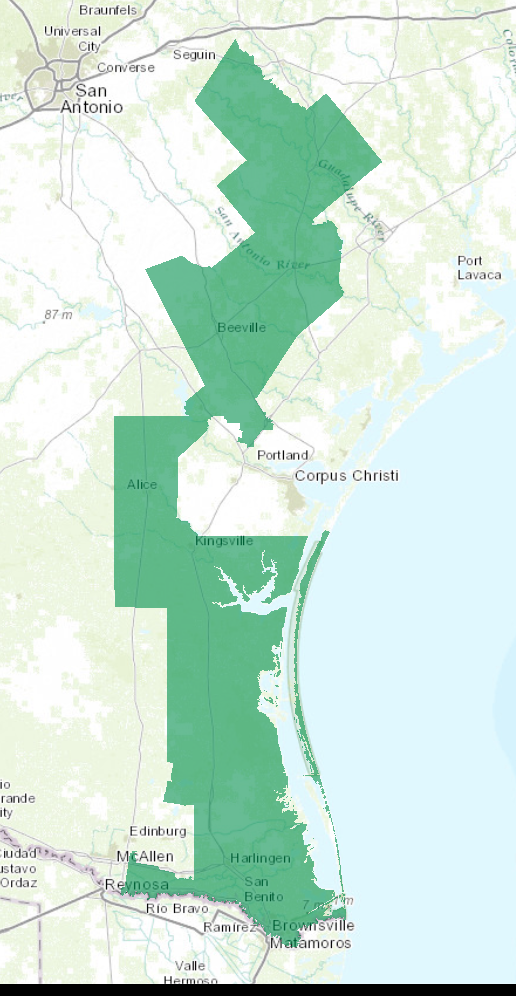National results were a deep disappointment to Republicans expecting a red wave. What about the results in Texas? Better:
In the House, the GOP grew its ranks by one — giving them an 86-to-64 advantage in the 150-member chamber for the 2023 legislative session. The Senate has 31 members, and Republicans previously outnumbered Democrats 18 to 13. The GOP will hold at least 19 seats next session. Democrats will hold at least 11, though they are leading in one Senate race that is still too close to call.
The Republicans’ victories were felt prominently in South Texas, where the GOP won key races after targeting the historically Democratic region of Texas after Democratic President Joe Biden underperformed there in 2020.
In House District 37, now anchored in Harlingen, Republican Janie Lopez beat Democrat Luis Villareal Jr. The seat is currently held by Democratic state Rep. Alex Dominguez, who unsuccessfully ran for state Senate rather than seek reelection. The district was redrawn to cut out many of the Democratic voters in Brownsville from the district to the benefit Republicans. Biden carried District 37 by 17.1 points in 2020 under the old boundaries, but would have won by only 2.2 points under the new map.
Lopez would be the first Latina Republican to represent the Rio Grande Valley in the House.
In another major South Texas victory, Rep. Ryan Guillen of Rio Grande City, who defected from the Democratic Party and ran this cycle as a Republican, won reelection handily.
In another crucial battle in southern Bexar County, which has traditionally been dominated by Democrats, Republican incumbent John Lujan prevailed over Democrat Frank Ramirez, a former San Antonio City Council member.
If 1978 is the year this election reminds me of nationally, then 1984 is the template year for Texas politics. In 1982, Phil Gramm resigned after Democrats threw him off the House Budget Committee (because why would you want a professional economist on a budget committee?), switched parties, and ran for his own vacancy in a special election as a Republican, winning handily.
Gramm’s switch showed that the time for conservatives to remain welcome in the Democratic Party was drawing to a close, and the way he resigned to run again rather than just switching made him a folk hero among Texas republicans. In 1984, Gramm ran for the senate, walloping Ron Paul, Robert Mosbacher, Jr. (a sharp guy who eventually did better in business than politics) and former Texas gubernatorial candidate Hank Grover in the Republican primary before decisively beating Lloyd Doggett (yep, the same one that’s still in congress) in the general by some 900,000 votes.
Gramm’s victory showed that the political careers of conservative Democrats who switched to the Republican Party could not only survive, but thrive. Between 1986 and the late 1990s, a series of high profile conservative Texas Democrats (including Kent Hance and Rick Perry) would switch from an increasingly radical Democratic Party to the GOP.
So too, this year showed that Hispanic Democrats could leave a party increasingly out of tune with people they represented (largely hard-working, law-abiding, entrepreneurial, conservative, and Catholic) for the Republican Party and win. Republicans may not have flipped terribly many seats in south Texas, but except for recent special election-winner Myra Flores, they held their gains.
The combination of Trump’s distinct appeal to working class Hispanics, deep opposition to disasterous Democratic open borders policies, and Gov. Abbott’s long term dedication to building out Republican infrastructure there have all primed Hispanics to shift to the GOP. Just as it took years for all Texas conservatives and most moderates to abandon the Democratic Party (Republicans wouldn’t sweep statewide offices until 1998), it will take years for the majority of Hispanics to switch.
But if Democrats continue to push open borders, social justice, radical transgenderism, soft on crime policies, high taxes and socialism, expect Hispanics to make that switch sooner rather than later.
That’s my Texas race roundup. If you have any notable highlights you think I should have covered, feel free to share them in the comments below.
